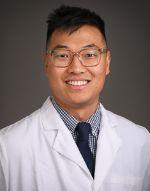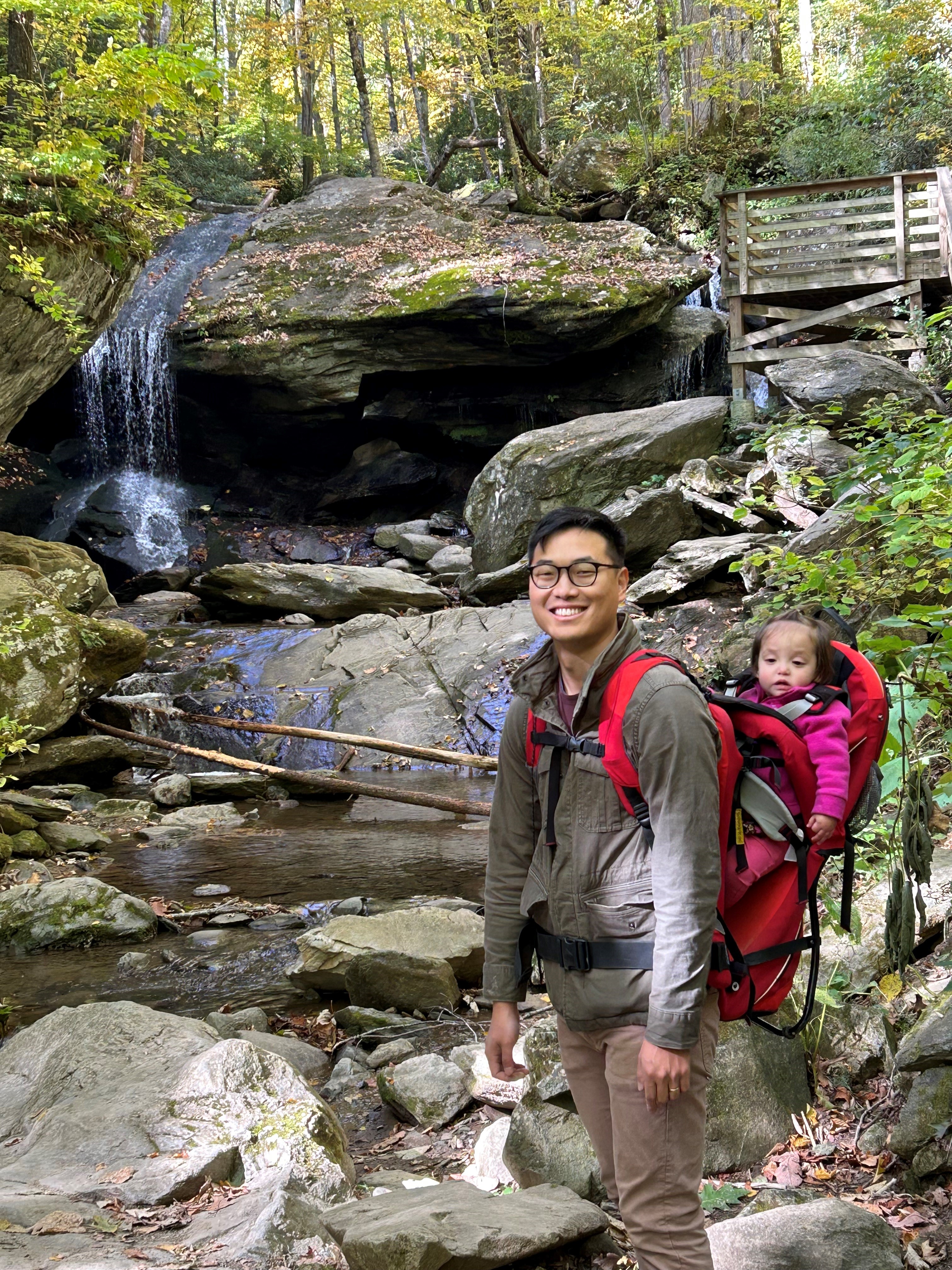
Our final “spotlight” of 2022 shines on Chief Resident Jung Hyun Ko, MD, MPH. Ko talks to us about becoming interested in the brain while learning how billions of neurons work together in a predictive manner to allow us to think, move, and speak. He also shares his plan for a future doing clinical and working as a neurohospitalist, how his background in epidemiology informs his perspective as a clinician, and enjoying music, video games, and time with family when he’s not at Duke.
What are your current responsibilities as a Chief Resident? What does a typical day look like for you?
A typical day really depends on the rotation. On the inpatient side, I rotate on consult service and general neurology service and take on more of the educational and supervisory role this year. These include teaching medical students, delegating tasks, and stepping in when help is needed. It has been a great experience learning to lead a team and great preparation for becoming an attending.
We also have plenty of elective / outpatient rotation time. My schedule is a bit more flexible during these rotations, and I appreciate that I get to use these rotations to explore the breadth of neurology (especially at Duke).
How and when did you first get interested in neurology? What disciplines or aspects of the field interest you the most?
I first became interested in neurology after the neurology block in my first year of medical school when I first learned about how billions of neurons in the human brain, each acting in a predictive manner, can work together to manifest more complicated features like movement, speech, and abstract thoughts. I became even more interested after my first neurology rotation seeing the clinical manifestations of this idea. I think the field of epilepsy is interesting to me for the same reason, as there are so many varied manifestations of seizures not only depending on the location but the combination and sequences of areas affected.
What plans do you have for after your residency? If you could have any job in the world, what would it be?
I plan to continue training at Duke as a clinical neurophysiology fellow after residency. After that, I hope to split my time between clinic and neurohospitalist work (I have to start looking for a job soon!).
If I could have any job in the world, I would love to be a chef. It is amazing watching chefs work in a busy kitchen and even more amazing that they can prepare consistently great dishes in such a hectic environment. I definitely do not have the cooking skills to do so now of course.
What was the focus of your MPH degree? How does that experience inform or complement your clinical perspective as a resident?
During my MPH year, I focused on epidemiology and learned Python and R mainly for data projects. I think in order to be a clinician nowadays, it is important to be familiar with interpreting and applying statistics, and my MPH certainly helped me with this.
What’s one experience from your time as a resident during the past year that has stood out to you as especially memorable or helpful so far?
I have a lot of memories to pick from. One that stands out to me is one of my clinic patients with Parkinson’s disease who I started following from diagnosis when I was a junior resident to now. It is very fulfilling that I was able to make a difference in his care. I appreciate that I can have longitudinal care in my clinic as a resident.
What other passions or hobbies do you have outside of the Department?
My favorite activities outside work include spending time with my wife and kids, playing the piano, going to concerts, and playing video games. My kids are a bit young now, but once they are a little bit older, I hope to travel with them.

Ko shared this photo of a recent hiking trip to Seven Devils, North Carolina.